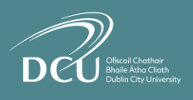About Msc In Financial Mathematics in Dublin City University
The aims of the programme are:
- To open up advanced career opportunities for graduates of traditional mathematics courses
- To give specialists in other numerate disciplines (e.g. engineers, scientists or economists) the opportunity to deepen their understanding of mathematics and to master powerful modern mathematical techniques
To achieve these aims it is intended:
- To introduce relevant problems and to explain the context in which they arise.
- To formulate these problems in mathematical terms.
- To instruct students in modern mathematical methods powerful enough to deal with these problems.
- To develop the student's ability to solve problems, by reformulating the problem and adapting mathematical methods.
Careers
The recent explosion of the derivative security market has created an unprecedented need for highly sophisticated mathematics within the banking sector.
Graduates with a wide spectrum of general methods and the ability to adapt them to new situations are infinitely more valuable to an employer.
Graduates are employed in quantitative roles in the Fin Tech, Financial Services and Banking industries. Typically working to determine price, analyse and manage risk and identify profitable opportunities.
Global career opportunities:
Non-EEA graduates (including those from Asia and the MiddleEast) are eligible to apply for the Third Level Graduate Programme to obtain a visa for up to two years, for the purpose of seeking employment. Numerous students from the MiddleEast, the Asian subcontinent and the Far East have completed this programme and returned to lucrative careers in their home countries.
Academic qualification equivalents
- Typically, you need a First Class Bachelor’s degree from a recognised top ranked university and/or affiliated colleges with a minimum of 60% average across all semesters. Students who have studied at a lower tiered institution may be considered with an overall average mark of 65% or above.
English language requirements (one of the below):
- IELTS for Postgraduate Taught Programmes: Overall score of 6.5 or above, with no less than 6.0 in any one skill. Additionally DCUBS require 6.5 in Speaking and Writing.
- TOEFL: Total Score of 92. DCU Business School additionally requires all section scores 21 or above.
- PTE Academic: Minimum score of 63, with no section score below 59
Dublin City University Highlights
| University Type |
Public University |
| Campus Setting |
Urban |
| Establishment Year |
1975 |
| No. of Campuses |
3 |
| No. of Residence Halls |
3 |
| International students |
2,337
71% in UG, 29% in PG courses |
| Research Funding |
~35 million EUR |
| Cost of Attendance |
~22,500 EUR |
| Applications Accepted |
Online/Offline |
| Work-Study |
Available |
| Intake Type |
Semester wise |
| Mode of Program |
Full time and online |
Dublin City University Average Tution fees And Other Expenses
Foreign students who wish to enrol at Dublin City University must be aware of the associated costs in order to budget appropriately and apply for scholarships when needed. The tuition costs for well-known programmes and other expenses related to studying in Ireland are covered below.
Tuition Fee for Dublin City University
Here are the details of the UG and PG fees for international students planning to study at any of the following faculties.
| Programs |
UG (EUR) |
PG (EUR) |
| Engineering |
15,000 |
17,000 |
| Business |
14,000 |
16,000-19,000 |
| Humanities |
15,000 |
15,000 |
| Science |
15,000 |
15,000 |
| Education |
12,600 |
13,700 |
Dublin City University Cost of Living
The cost of living here includes monthly expenses an international student would require to study at Dublin City University:
| Expense |
Monthly Cost (EUR) |
| Rent (On-campus) |
692-1216 |
| Rent (Off-campus) |
850-1300 |
| Food |
250 |
| Travel |
132 |
| Books and Materials |
75 |
| Medical |
45 |
| Miscellaneous |
178 |
| Total |
Approximately 2,222 |
